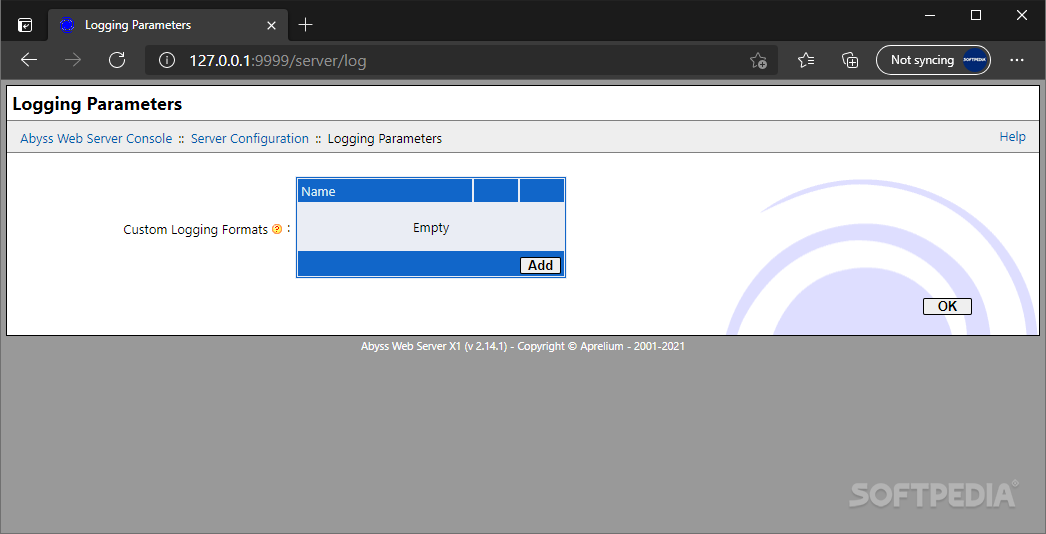

The request message contains information about what the browser wants, and the response message contains information about what the server is sending back.įor example, when you type a URL into your browser, the browser sends a request to the server for that page. The browser sends a request message to the server, and the server sends back a response message. The browser and the server communicate using what are known as request and response messages.
#Abyss web server javascript support software#
Once the web server software is installed on a computer, it can start handling requests from browsers.

#Abyss web server javascript support windows#
Most web server software is designed to run on Unix- or Linux-based systems, although there are some options available for Windows as well. The computer itself just provides a place for the software to run. Web server software is what actually handles requests from browsers and delivers pages back to them. However, if the server is busy or there is a lot of traffic, it can take longer for the page to load. The entire process happens very quickly, usually in just a few milliseconds. The server then processes the request and sends the page back to the browser, again using TCP/IP. When a browser contacts the server, it does so using a network protocol like Hypertext Transfer Protocol (or HTTP, which runs on TCP/IP). The web server software is what actually handles requests from browsers and delivers pages back to them.

To understand how web servers work, it's helpful to think of them as two separate components: the web server software (like Apache or NGINX) and the computer on which the software is running. The server then sends the page back to the browser, which displays it on your screen. Now that we've answered the question "what is a web server," let's take a closer look at how they work.Īs we mentioned earlier, when you type a URL into your browser, the browser contacts the server and requests the page.

In the next section, we'll take a look at some of the things you need to consider when configuring your web server. No matter where you choose to host your web server, it's important to make sure that it's properly configured to serve your web pages quickly and efficiently. However, it also means that you have less control over the server and its security. This can be advantageous because it frees up resources that would otherwise be devoted to maintaining the server. Off-premises hosting, on the other hand, means that the web server is located outside of your development team's building. However, it also requires more resources to maintain and keep running smoothly. This can be advantageous because it gives you more control over the server and its security. Hosting on-premises means that the web server is physically located in the same building as the rest of your development team. Web servers can be hosted on-premises or off-premises. For example, if you're planning on running server-side scripts or applications, you'll need a web server that supports those technologies. When choosing a web server for your project, it's important to consider your needs and what features are most important to you. Some of the most popular web server software includes Apache, NGINX, Microsoft IIS, and Google Web Server. There are many different types of web servers available, each with its own set of features and capabilities. However, at their core, all web servers serve pages to browsers upon request. Most web servers also have additional features and functionality, such as the ability to run server-side scripts (like PHP or Ruby on Rails) and support for server-side applications (like databases). A way to deliver those stored pages to browsers upon request (usually via a network protocol like Hypertext Transfer Protocol, or TCP/IP).A way to store web pages (usually in the form of files).In order for this process to work, web servers must have two key components: When you type a URL into your web browser, the browser contacts the server and requests the page. Let's take a closer look at how web servers work. Of course, there's a bit more to it than that. Without web servers, we wouldn't be able to access the internet as we know it. Your browser then displays the content sent by the server. When you type in a website address - like "- your computer sends a request to a web server, which then sends back the website's content. In essence, it's a computer that stores websites and makes them available to users all over the world.


 0 kommentar(er)
0 kommentar(er)
